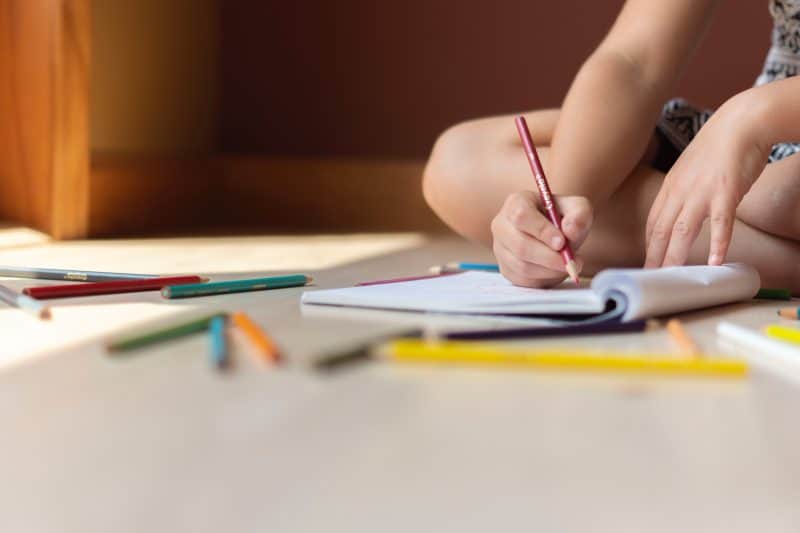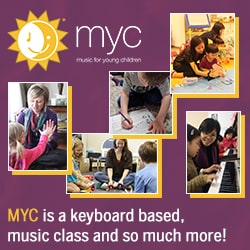Getting Ready for Primary 1: Be Prepared, but Don’t Over-prepare

Photo by Sarah Dietz from Pexels
In the age of Covid-19, preparing for primary school may look slightly different than before.
For one, certain experiences such as school orientations may shift online, depending on what the prevailing situation is. Also, compared to previous years, preschools may have had fewer opportunities to prepare children for life in primary school, due to our new social distancing realities.
Furthermore, with Covid-safe practices — such as masks on for the entire school day — there may be new habits to get accustomed to, especially if your child has skipped out on preschool. And finally, schools are still likely to switch to Home-Based Learning or HBL if the situation calls for it, and this requires self-discipline on the child’s part, so that he or she doesn’t lose focus and fall off track in terms of schoolwork.
With all this in mind, you may feel more anxious about whether or not your child is “school ready.” Please rest assured that schools do not expect parents to do too much when it comes to academic readiness. However, they do hope that parents will place an emphasis on soft skills such as self-control — an example would be the ability to pay attention, instead of talking or reading a book while a class is in session.
Below, we outline some skills and expectations that schools might have for your child, so that you can help to ease your child’s transition into primary school.
Basic Academic Skills For Primary 1
Based on the school orientation materials prepared by some primary schools, here are the literacy and numeracy skills that many children will have by the time they enter primary 1.
Literacy Skills
- For English, to read and write the 26 letters of the alphabet in capital and small letters. (Note: it is a common mistake to say “the alphabets” when we really mean “letters.” An “alphabet” is the set of all the letters in a written language.)
- Write one’s name in English and the Mother Tongue
- Read and write simple words in English and the Mother Tongue
- Read and construct simple sentences in English and the Mother Tongue
- Understand simple instructions in English and the Mother Tongue
Numeracy Skills
- Count from 1 to 20
- Tell the time
- Know the values of dollar notes and coins
- Remember important telephone numbers (or have it written on an easily accessible notecard)
Don’t worry unduly if your children have not picked up the skills listed above, as all primary schools have learning support programmes to help students catch up.
For English and Maths, weaker students will be identified at P1, through screening tests that will be conducted upon school entry. For Mother Tongue Languages, weaker students will be identified at P2 to join a support programme at P3 and 4. Students who continue to face challenges after intervention will be screened for learning difficulties such as dyslexia.
Recent figures are not available, but past estimates have indicated that about 12 to 14 percent of P1 children require additional support each year.
On the flipside, if your children are fast learners, you may be tempted to help them “skip ahead” by working on advanced material. Educators will generally advise that you do not do this, as overpreparation can hinder learning.
First, children may feel stretched thin with too many enrichment activities, and second, they may become bored and restless in school as they are already familiar with what is being taught. Worse, they may adopt their own learning shortcuts or even decide that teachers are not worth listening to, which will increase their disengagement from school.
There is no need to give a P1 child materials from P2 and beyond—let the school set the pace. If your child is truly gifted, he or she can transfer to the Gifted Education Programme (GEP) after the screening process in P3.
Essential Non-Academic Skills For Primary 1
You may not realise just how much you have been doing for your preschooler, until you discover that he or she doesn’t know how to button a shirt or fasten a seatbelt.
During the months leading up to the first day of school, you can learn to let go, and entrust your child with more personal responsibilities, such as getting dressed without assistance. Don’t sweat the small stuff, for instance, if socks are not neatly put on. Your child will learn slowly, but surely.
Some examples of daily life skills that your child should have include:
- Getting dressed (your child can practise putting on the school uniform before school begins)
- Putting on shoes and tying shoelaces, if not using shoes with velcro
- Packing a school bag
- Keeping track of one’s belongings
- Asking for permission (e.g. to use the bathroom) and asking for help (e.g. alerting the teacher if one feels ill)
- Copying or writing a teacher’s instructions into the student handbook
- Ordering food (when dining out, let your child order his or her meal)
- Handling money and change
- Eating within a specified timeframe
- Basic hygiene habits such as ensuring that a toilet is clean after use, and the washing of one’s hands
- Responding to bullying and cyberbullying, which could be the more common problem these days
You may have also heard about the importance of “soft skills,” or skills that help a person to adapt to different situations by communicating effectively, collaborating, and managing conflict. To be frank, it can be hard to keep track of all the skills that a school-going child might need. As a guide, you can refer to UNICEF’s 12 Core Life Skills. These consist of:
Personal Empowerment Skills
- Self Management
- Communication
- Resilience
Learning Skills
- Problem solving
- Critical thinking
- Creativity
Leadership/Employability Skills
- Cooperation
- Negotiation
- Decision making
Citizenship Skills
- Participation
- Empathy
- Respect for diversity
Here are some reflection questions for parents:
- What do each of the above items mean to you, or, what specific skills do you think fall under each item?
- Which skills do you consider most important for P1?
- What are some practical ways to help your child develop the most important skills before school begins?
- Is there something that you consider important that isn’t on this list?
We hope that this framework will be useful in helping you decide what life skills to prioritise for your child. For more ideas, you can also read our parent-contributed P1 Preparation Checklist, as well as Schoolbag.sg’s list of 6 Soft Skills For School Success.
Covid-19 Readiness For Primary 1
The pandemic has been a long and exhausting journey even for adults, so do have patience with your child.
To talk to kids about Covid-19, you can download the free e-book by UNICEF, titled “My Hero Is You,” which is suitable for children aged 6 to 11. The story addresses the concerns voiced by children during the current phase of the pandemic, and explores the various coping mechanisms that they can use when facing difficult emotions like fear, anger, and sadness.
This is also the time to ensure that your children remain in good health, by adhering to strict bedtimes and limiting their screen time. Although it may be challenging, you should find ways for your children to exercise at least several times a week — taking regular walks in a nearby park is a good start.
Unlike before, where children could readily play together and attend birthday parties, there could be limited opportunities to socialise with classmates in the new school year. To foster a sense of community, do join a class WhatsApp group if there is one — when used wisely, it is a great way to bond with fellow parents and feel less alone. You will appreciate the support and camaraderie, especially during HBL!
If your child is not familiar with Covid-safe practices such as masking up for long periods, now is a good time to find a mask that your child is comfortable with, so that he or she can practise wearing it for a longer duration.
It remains uncertain how disruptive the new school year might be. You can stay informed by reading about kids who learn well during Covid-19. Find out what they are doing differently, so that you can prepare your child to weather the storm too.
Above all, have faith in your child’s ability to cope with school life, with or without social distancing. Try as you might, you can’t prepare your child for every single school scenario that might crop up — and that would be defeating the purpose of school as a place of learning. You are doing your bit at home, so leave the rest to the school teachers and leaders, and trust that they too will do their jobs well.


